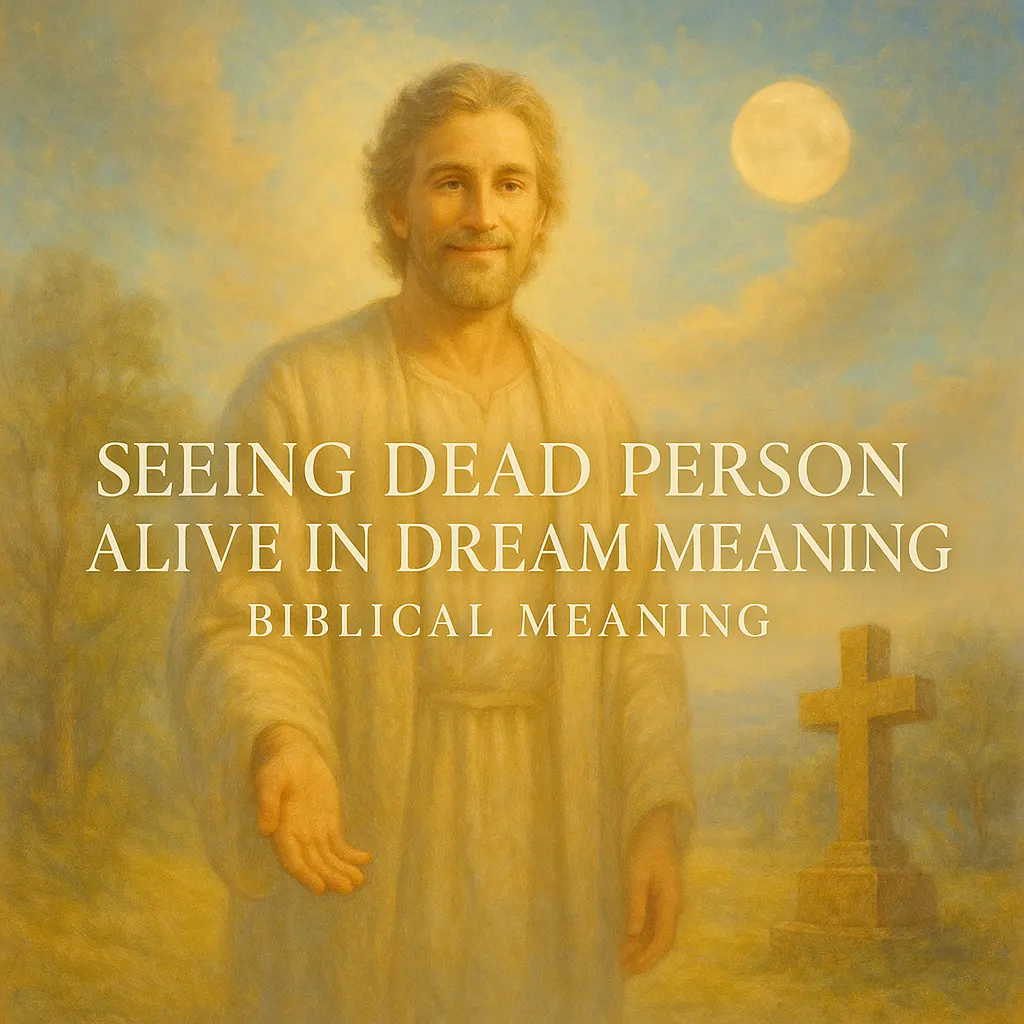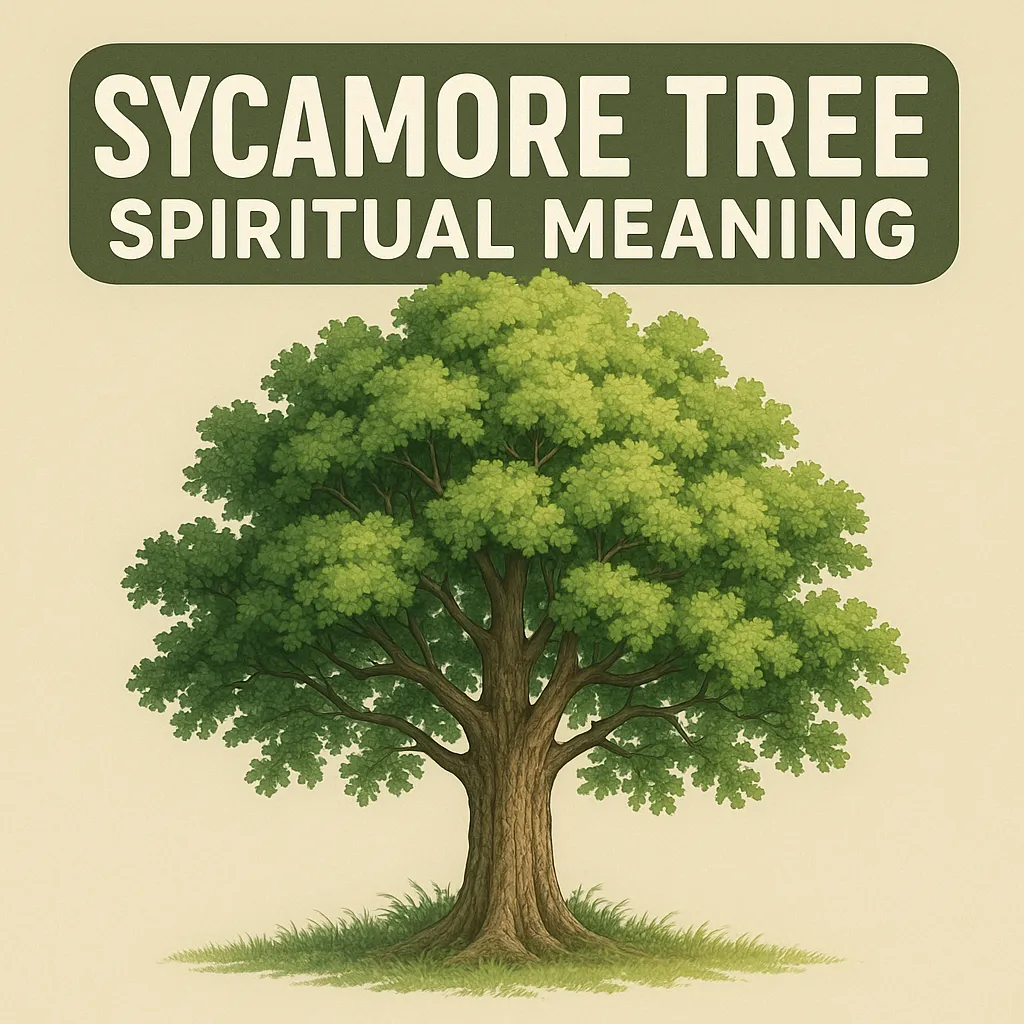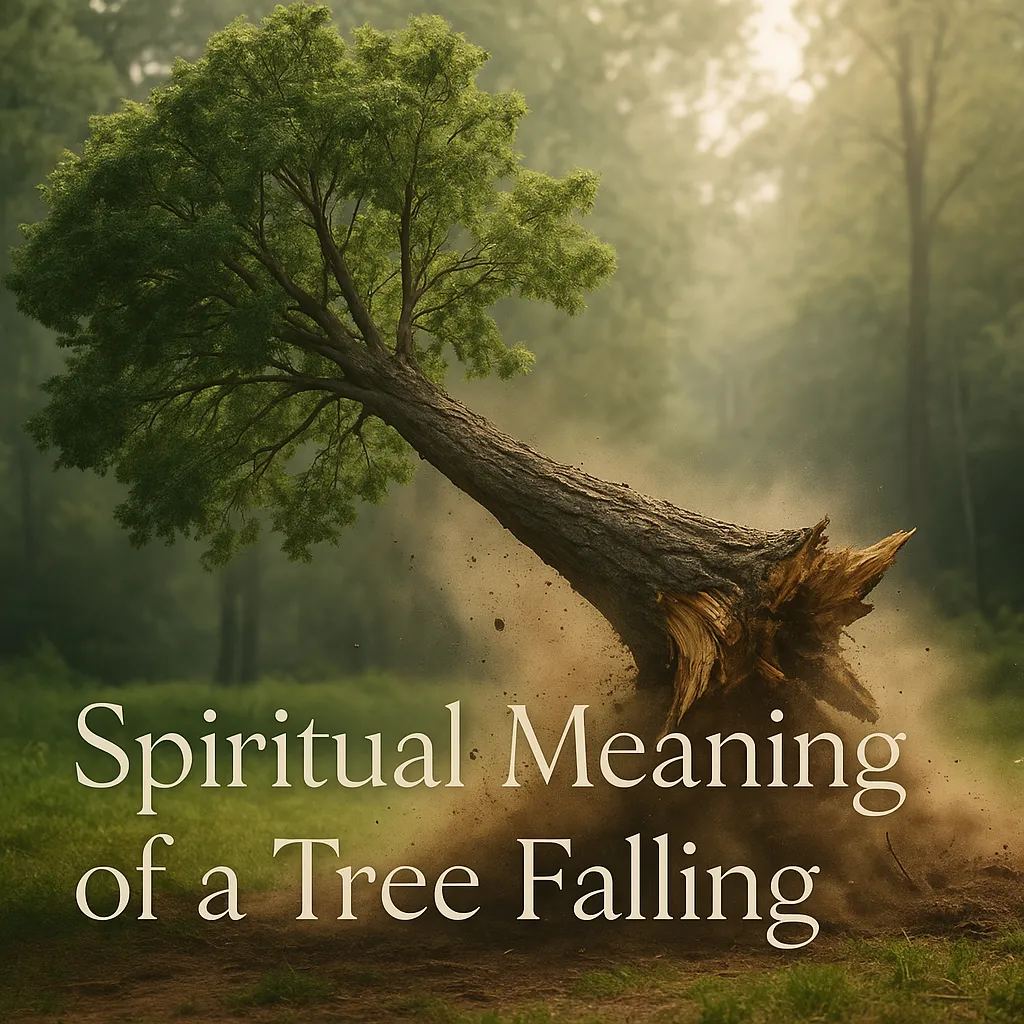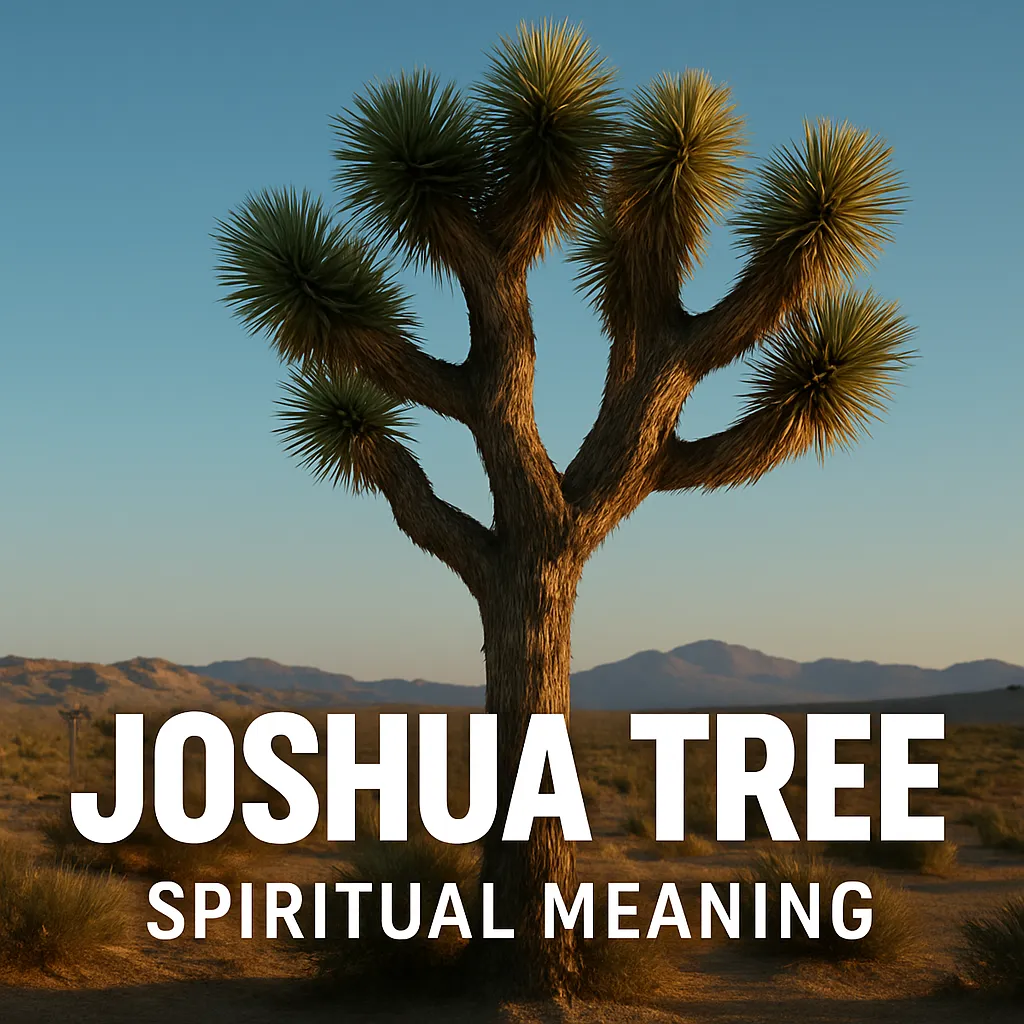The veil between worlds grows thin in our dreams. That sacred space where a departed loved one suddenly appears—alive, vibrant, and speaking as though death never claimed them—leaves us breathless with both wonder and confusion. These profound nocturnal encounters have mystified humanity since ancient times, appearing in biblical texts and spiritual traditions worldwide.
The phenomenon of seeing dead person alive in dream biblical meaning touches something primal in our souls—a longing for reunion, a hope for what lies beyond, a search for closure in grief’s landscape. Whether you’ve recently experienced dreaming of dead relatives talking to you or simply seek to understand these sacred visitations, know that you’re walking a path trodden by countless seekers before you. These dreams occupy the delicate intersection of grief, memory, divine communication, and the mysteries of consciousness that transcend our waking understanding.
Table of Contents
- 1 Key Takeaways
- 2 The Phenomenon of Visitation Dreams
- 3 Biblical Foundation for Dream Interpretation
- 4 Biblical Meanings of Seeing Dead People Alive in Dreams
- 5 Psychological Perspectives Within a Biblical Framework
- 6 Cross-Cultural Perspectives and Biblical Truth
- 7 Common Types of Dreams About Deceased Loved Ones
- 8 Biblical Guidance for Responding to These Dreams
- 9 When to Seek Further Support
- 10 FAQ
- 10.1 What is the meaning of dead person alive in dream?
- 10.2 Is it good to see dead person in dream?
- 10.3 Seeing dead person alive in dream meaning biblical meaning Christianity
- 10.4 Seeing dead person alive in dream meaning biblical meaning KJV
- 10.5 What is the meaning of dead person alive in dream Hinduism?
- 10.6 What is the meaning of dead person alive in dream spiritual meaning?
- 10.7 Seeing dead person alive in dream meaning astrology
- 10.8 Dreaming of dead relatives talking to you
- 11 Sources
Key Takeaways
- Biblical dream interpretation views dreams of deceased loved ones as potential vehicles for divine comfort and spiritual messages, not random mental phenomena.
- These dreams may serve as a divine mechanism for processing unresolved grief, offering closure and emotional healing aligned with biblical promises of comfort.
- Scripture provides a framework for discerning whether a dream about a deceased person contains spiritual truth or merely reflects our emotional processing.
- Dreams of the dead appearing alive can reflect the biblical promise of resurrection and eternal life, offering a glimpse of spiritual realities beyond our mortal experience.
- Responding to these dreams requires a balanced approach of spiritual wisdom and emotional honesty, neither dismissing their potential significance nor becoming obsessed with their meaning.
The Phenomenon of Visitation Dreams
Visitation dreams stand apart from ordinary dreams in remarkable ways. Unlike the fragmented, often nonsensical nature of typical dreams, these experiences feel extraordinarily real and vivid. The deceased appears healthy, whole, and communicative—often with a sense of presence that transcends normal dreaming.
Studies suggest that between 60-80% of bereaved individuals report having these dreams, often describing them as more like visits than dreams. Many report waking with a sense of peace rather than the confusion that typically follows ordinary dreams. “It wasn’t like any dream I’ve ever had,” people commonly report. “It felt like they were actually there.”
These dreams typically share several distinctive qualities:
- Exceptional clarity and coherence
- Strong emotional impact that persists after waking
- A sense of genuine communication rather than dream-like fantasy
- The deceased appearing peaceful, healthy, and whole
- A lingering feeling of genuine connection upon waking
The emotional impact of these encounters can be transformative, often providing comfort that defies explanation. While some experience these dreams immediately after loss, others report visitation dreams years later, sometimes during periods of personal crisis or significant life transitions when guidance seems most needed.

Biblical Foundation for Dream Interpretation
Throughout Scripture, dreams serve as a consistent channel of divine communication. The Bible contains over 200 references to dreams, establishing them as one of God’s chosen methods for revealing His will and truth. In Genesis 28:10-17, Jacob’s dream of a ladder reaching to heaven with angels ascending and descending became a pivotal moment in his spiritual journey. Joseph’s prophetic dreams in Genesis 37 ultimately saved his family and the Egyptian people from famine.
The Bible distinguishes between ordinary dreams and those with divine significance. In Numbers 12:6, God declares: “If there is a prophet among you, I the Lord make myself known to him in a vision; I speak with him in a dream.” This establishes that while all dreams aren’t necessarily prophetic, God can and does communicate through this medium.
Joel 2:28 offers a promising prophecy later quoted in Acts 2:17: “And it shall come to pass afterward, that I will pour out my Spirit on all flesh; your sons and your daughters shall prophesy, your old men shall dream dreams, and your young men shall see visions.” This suggests dreams as a continuing avenue of spiritual revelation, not limited to biblical times but extending into our present experience.
Biblical figures who received divine guidance through dreams include:
- Joseph, who received warnings to protect the infant Jesus (Matthew 1:20-21, 2:13)
- Solomon, who received wisdom from God in a dream (1 Kings 3:5-15)
- Daniel, whose prophetic dream interpretations changed kingdoms (Daniel 2, 4)
- The Magi, who were warned in a dream to avoid returning to Herod (Matthew 2:12)
This biblical foundation provides context for understanding dreams about deceased loved ones, suggesting they may sometimes carry spiritual significance beyond mere psychological processing.

Biblical Meanings of Seeing Dead People Alive in Dreams
Divine Comfort and Reassurance
One of the most consistent biblical perspectives on dreams of deceased loved ones is their potential role as vessels of divine comfort. Scripture repeatedly emphasizes God as “the Father of compassion and the God of all comfort” (2 Corinthians 1:3-4). Through such dreams, many believe God provides tangible reassurance of His promise in Matthew 5:4: “Blessed are those who mourn, for they shall be comforted.”
These comfort-bearing dreams often feature the deceased appearing healthy and at peace, communicating messages of reassurance or simply being present in a way that calms the dreamer’s heart. They can serve as powerful reminders of the resurrection hope central to Christian faith—that death is not the end but a transition to eternal life.
For many believers, these dreams echo the comfort Jesus provided to Martha before raising Lazarus: “I am the resurrection and the life. The one who believes in me will live, even though they die” (John 11:25). In this way, dreams may offer a glimpse of the spiritual reality promised in Scripture, where death has lost its sting (1 Corinthians 15:55).
Unresolved Grief and Emotional Processing
The Bible acknowledges the reality of grief and the need for emotional processing. Jesus himself wept at Lazarus’s tomb (John 11:35), validating the natural human response to loss. Dreams of deceased loved ones may represent God’s provision for healthy grieving—a space where unspoken words can be shared and emotional closure sought.
These dreams often occur at significant junctures in the grief journey, possibly serving as divine assistance in moving through what Psalm 23:4 calls “the valley of the shadow of death.” They can facilitate the processing of regret, reconciliation of unresolved conflicts, or simply provide an opportunity to say goodbye in ways not possible before death occurred.
The biblical narrative of David’s grief for his son (2 Samuel 12:15-23) illustrates this process. After intense mourning, David found peace and moved forward. Similarly, dreams may help the bereaved integrate loss into their ongoing life story, allowing them to honor the deceased while continuing their earthly journey with renewed purpose.
Warnings or Prophetic Messages
In some instances, dreams of deceased loved ones may carry warnings or specific guidance. Matthew 2:12-13 recounts how Joseph received crucial warnings through dreams that protected the infant Jesus. Similarly, dreams featuring deceased individuals might sometimes serve as vehicles for divine guidance.
Scripture counsels discernment regarding all spiritual messages: “Test the spirits to see whether they are from God” (1 John 4:1). This applies to dream content as well. A dream’s message should always align with biblical truth and lead toward godly outcomes rather than confusion or fear.
When these dreams contain specific instructions or warnings, believers are encouraged to seek confirmation through prayer, Scripture, and wise counsel. The content should promote faith, hope, and love—the core virtues affirmed throughout biblical teaching.
Some believers describe receiving specific information through deceased loved ones in dreams that they could not have known otherwise, reminiscent of how God used dreams to guide Joseph in protecting Mary and Jesus. While discerning spiritual meaning requires caution, these experiences suggest God’s continuing communication through dreams in our present age.

Remembrance and Honor
Dreams often serve as spaces of remembrance, aligning with the biblical value of honoring those who have completed their earthly journey in faith. Hebrews 11 commemorates the “great cloud of witnesses”—faithful individuals whose legacy continues to inspire. Dreams may facilitate this sacred remembering, helping preserve the values and wisdom of those who have gone before us.
These dreams sometimes occur near anniversaries, birthdays, or significant milestones, serving as reminders of the deceased’s impact and the continuing bond that transcends physical separation. They may reflect the truth expressed in Ecclesiastes 3:11 that God “has put eternity into man’s heart.”
Unlike secular perspectives that might view such dreams merely as psychological phenomena, a biblical worldview allows for the possibility that these experiences connect to deeper spiritual realities—perhaps even reflecting the communion of saints described in Hebrews 12:1, where we are “surrounded by such a great cloud of witnesses.”
Psychological Perspectives Within a Biblical Framework
A holistic understanding of dreams about deceased loved ones acknowledges both spiritual and psychological dimensions. Rather than seeing these as competing explanations, a biblical framework integrates these perspectives, recognizing that God works through natural processes as well as supernatural intervention.
Carl Jung’s concept of the collective unconscious—a shared reservoir of human experience that manifests in dreams—finds resonance with biblical notions of shared spiritual heritage and collective memory. The symbolic language of dreams may reflect both divine communication and the mind’s natural processing of grief.
Modern grief research has identified several psychological functions these dreams may serve:
- Processing emotions too overwhelming for conscious thought
- Continuing bonds with the deceased in healthy ways
- Integrating the reality of death into one’s worldview
- Finding meaning in loss through symbolic representation
These psychological processes aren’t at odds with biblical teaching but can be viewed as mechanisms through which God’s comfort and healing operate. Just as God uses physical medicine to heal the body, He may utilize dream processes to heal the grieving heart.
As Psalm 147:3 promises, “He heals the brokenhearted and binds up their wounds.” Dreams of the deceased may represent one way this divine binding occurs, merging psychological healing with spiritual comfort in God’s comprehensive care for those who mourn.
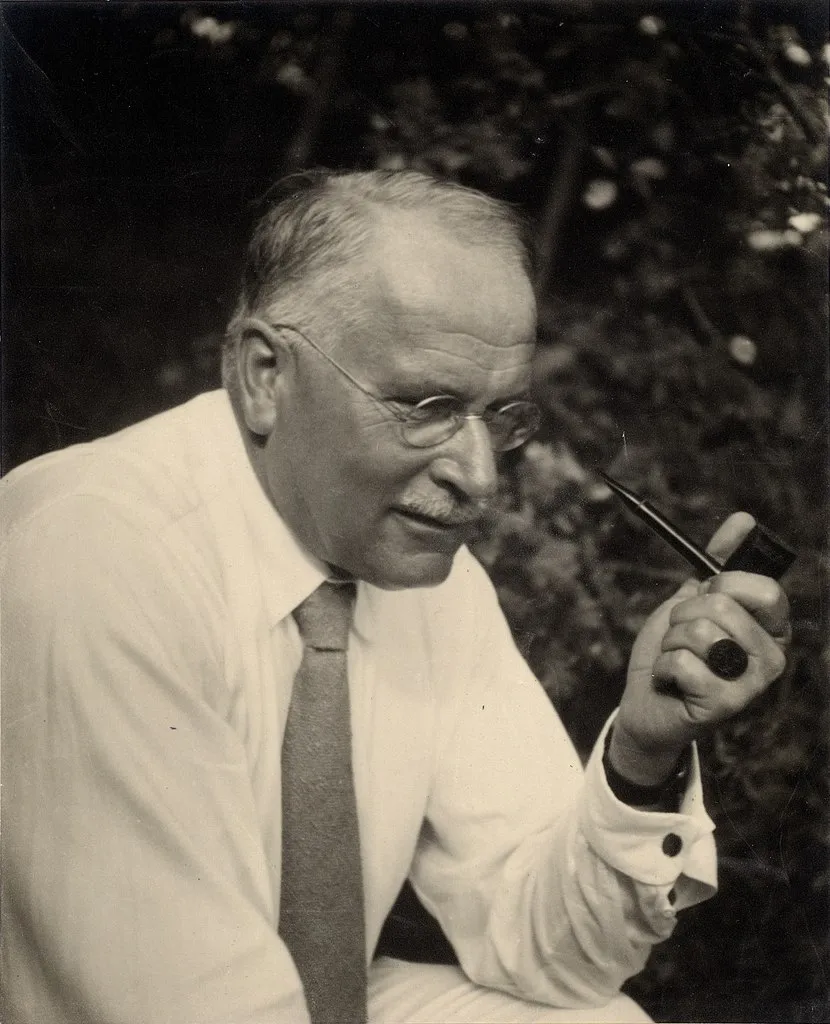
Cross-Cultural Perspectives and Biblical Truth
Dreams of deceased loved ones occur across cultures and throughout history, suggesting a universal human experience that transcends cultural boundaries. Ancient Hebrew understanding viewed dreams as potential avenues of divine communication, though with careful distinctions between true prophetic dreams and ordinary ones.
Early Christian interpretations, influenced by passages like Job 33:14-15 (“For God speaks in one way, and in two, though man does not perceive it. In a dream, in a vision of the night…”), acknowledged dreams as one way God might communicate comfort or guidance to the bereaved.
While many cultures attribute these dreams to direct communication from the deceased, biblical teaching emphasizes God as the ultimate source of all true spiritual communication. This distinction is important when considering what is the meaning of dead person alive in dream from a biblical perspective versus other spiritual traditions.
Various cultural traditions offer different interpretations:
- In some Indigenous traditions, these dreams represent actual visits from ancestral spirits
- Hindu tradition may interpret them as part of the deceased’s journey through reincarnation
- Some African traditions view them as the deceased communicating needs or offering protection
A biblical approach acknowledges these cross-cultural patterns while maintaining that all spiritual experiences must be evaluated through Scripture’s guidance. This balance honors the universality of these dream experiences while providing a framework for interpreting them that aligns with biblical revelation.
Common Types of Dreams About Deceased Loved Ones
Conversations and Reconciliation
Many dreamers report meaningful conversations with deceased loved ones that facilitate emotional healing. These dialogues often provide opportunities to express unspoken words, seek forgiveness, or receive closure that wasn’t possible before death occurred.
From a biblical perspective, these conversations align with Scripture’s emphasis on reconciliation and peace. Matthew 5:23-24 emphasizes the importance of resolving conflicts, and these dreams may provide a space where such emotional resolution can occur even after a person has passed.
The content of these conversations often reflects biblical values of forgiveness, love, and peace. Dreamers frequently report waking with a profound sense of relief and closure, suggesting these dream encounters may serve as vehicles for the “peace that passes understanding” promised in Philippians 4:7.
Witnessing Their Wellness
A common and particularly comforting dream type involves seeing the deceased person completely restored—free from illness, disability, or the effects of aging that may have marked their final days. These dreams often feature the departed looking radiant, whole, and joyful.
Such dreams resonate deeply with biblical promises of resurrection and restoration. Isaiah 25:8 prophesies that God “will swallow up death forever,” while Revelation 21:4 promises a future where God “will wipe away every tear from their eyes, and death shall be no more, neither shall there be mourning, nor crying, nor pain anymore.”
For many believers, these dreams provide a comforting glimpse of the resurrection reality promised in 1 Corinthians 15:42-44, where “what is sown is perishable, what is raised is imperishable.” They serve as powerful reminders of the Christian hope that death represents transformation rather than termination.
Receiving Messages or Warnings
Some dreams include specific messages, warnings, or guidance delivered by the deceased. These range from simple expressions of continued love to specific instructions about family matters or impending situations.
Biblical discernment is especially important with message-bearing dreams. While God can certainly communicate guidance through dreams (as with Joseph in Matthew 1-2), Scripture cautions against accepting all spiritual communications uncritically (1 John 4:1).
The content of such messages should be evaluated against biblical truth. Authentic divine communication, even through dreams, will always align with Scripture’s teachings and lead toward greater faith, hope, and love rather than fear or confusion. When considering spiritual meaning in these dreams, consistency with biblical principles remains the primary test.
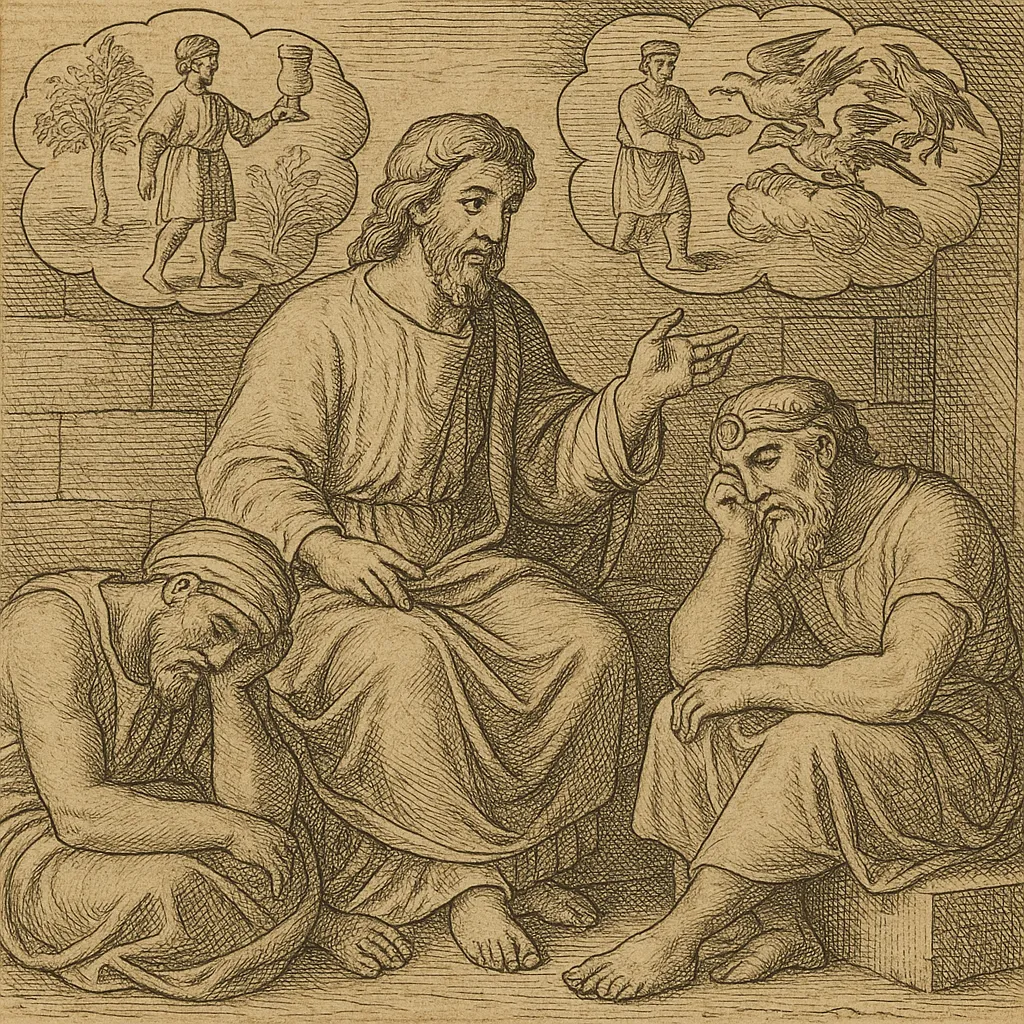
Ordinary Activities and Moments
Many dreams simply feature everyday interactions with the deceased—sharing meals, taking walks, or engaging in familiar activities. These ordinary moments often carry extraordinary emotional significance, providing a sense of continuing connection.
These dreams reflect the biblical concept of eternity set in human hearts (Ecclesiastes 3:11) and the enduring nature of love described in 1 Corinthians 13:8: “Love never ends.” The ordinary activities portrayed suggest the relational continuity that transcends physical death.
While these dreams lack dramatic spiritual messages, their quiet comfort often provides profound peace to the dreamer. They may represent God’s gentle reassurance of continuing bonds and the promise that relationships formed in love have eternal significance beyond our earthly experience.
Biblical Guidance for Responding to These Dreams
Prayer and Discernment
Scripture encourages us to “pray without ceasing” (1 Thessalonians 5:17) and to seek divine wisdom for interpreting spiritual experiences. James 1:5 promises that God gives wisdom generously to all who ask, making prayer the essential first response to dreams of deceased loved ones.
This prayerful approach includes:
- Asking for clarity about the dream’s meaning and purpose
- Seeking discernment about which elements might be divine communication versus natural grief processing
- Requesting wisdom to respond appropriately to any messages received
- Giving thanks for the comfort or insights provided through the dream
The Holy Spirit’s role in discernment is crucial. Jesus promised in John 16:13 that “when the Spirit of truth comes, he will guide you into all the truth.” This divine guidance helps believers distinguish between wishful thinking, psychological processing, and authentic spiritual communication in their dreams.
Finding Comfort in Scripture
God’s written word provides the ultimate framework for interpreting and responding to dreams. Several passages offer particular comfort and guidance when processing dreams of deceased loved ones:
- 1 Thessalonians 4:13-18 – Hope for believers regarding those who have “fallen asleep”
- Revelation 21:1-7 – The promise of God’s presence and the wiping away of all tears
- Psalm 23 – God’s comforting presence through the valley of the shadow of death
- Romans 8:38-39 – The assurance that nothing, including death, can separate us from God’s love
Immersing oneself in these and similar passages provides spiritual anchoring when processing emotionally powerful dreams. Scripture’s promises remind us that God is the God of all comfort (2 Corinthians 1:3), who works in various ways—including dreams—to heal the brokenhearted.
Sharing with Faith Community
The biblical model for spiritual discernment includes seeking wisdom within community. Proverbs 15:22 observes that “without counsel plans fail, but with many advisers they succeed.” Sharing dream experiences with mature believers provides valuable perspective and prevents isolation in grief.

A faith community can offer:
- Additional biblical insight into dream content
- Confirmation or caution regarding interpretations
- Shared experiences that normalize these powerful dreams
- Ongoing support in the grief journey
The early church modeled this communal discernment, gathering to interpret spiritual experiences in light of apostolic teaching (Acts 2:42). Similarly, today’s believers benefit from processing significant dreams within a supportive community that values both biblical truth and compassionate presence.
Maintaining Spiritual Balance
While dreams of deceased loved ones can provide genuine comfort, Scripture cautions against obsession with spiritual experiences or seeking communication with the dead (Deuteronomy 18:10-12). Biblical wisdom encourages maintaining Christ as the center of spiritual life rather than focusing excessively on dreams or signs.
Healthy spiritual balance includes:
- Receiving comfort from dreams without becoming dependent on them
- Appreciating their meaning without elevating them above Scripture
- Processing grief through both spiritual and practical means
- Continuing to engage with the living while honoring the memory of the deceased
Jesus promised in Matthew 11:28-30: “Come to me, all who labor and are heavy laden, and I will give you rest.” This invitation reminds believers that ultimate comfort comes through relationship with Christ, with dreams potentially serving as one avenue through which that comfort flows.
When to Seek Further Support
While dreams of deceased loved ones can provide comfort and aid the grieving process, certain circumstances may signal the need for additional support. Biblical wisdom acknowledges both spiritual and practical dimensions of wellbeing, as seen in Proverbs 12:25: “Anxiety in a man’s heart weighs him down, but a good word makes him glad.”
Consider seeking additional support when:
- Dreams become increasingly disturbing rather than comforting
- You experience persistent depression or anxiety despite dream comfort
- Dreams lead to unhealthy preoccupation with the deceased
- Regular functioning in daily life becomes difficult
- You feel unable to move forward in the grief process
Resources that honor both faith and mental wellbeing include pastoral counseling, Christian grief support groups, and therapists who respect spiritual dimensions of experience. This balanced approach reflects the holistic care modeled by Jesus, who addressed both spiritual and practical needs.
Remember that seeking help demonstrates wisdom, not weakness. Just as the Apostle Paul relied on both divine guidance and the support of fellow believers (Acts 9:10-19), those processing powerful dream experiences benefit from both spiritual resources and human companionship along the journey.
FAQ
What is the meaning of dead person alive in dream?
From a biblical perspective, seeing a dead person alive in dreams may represent divine comfort, unresolved grief seeking resolution, or symbolic communication. These dreams often reflect our inner processing of loss while potentially serving as vehicles for spiritual reassurance about eternal life. The specific meaning varies based on the dream’s content and your relationship with the deceased.
Is it good to see dead person in dream?
Dreams of deceased loved ones are generally considered positive experiences within biblical tradition, especially when they bring peace and closure. They may reflect God’s comfort in grief as promised in Matthew 5:4. However, if such dreams produce fear or confusion, this may indicate unresolved spiritual or emotional issues requiring prayer and possibly counseling.
Seeing dead person alive in dream meaning biblical meaning Christianity
Christianity views these dreams through resurrection theology—reminders that death is not final for believers. They may represent divine comfort (2 Corinthians 1:3-4), symbolic glimpses of eternal life (John 11:25-26), or God’s way of facilitating healing during grief. These dreams often align with Scripture’s promise that we will be reunited with faithful departed ones (1 Thessalonians 4:13-18).
Seeing dead person alive in dream meaning biblical meaning KJV
The King James Version presents dreams as potential vehicles for divine communication. Job 33:14-15 states, “God speaketh once, yea twice, yet man perceiveth it not. In a dream, in a vision of the night…” Such dreams may reflect God’s comfort to the bereaved or occasionally carry specific messages, though always requiring discernment through prayer and Scripture.
What is the meaning of dead person alive in dream Hinduism?
In Hindu tradition, these dreams may represent unresolved karma between souls, the deceased’s journey through reincarnation, or ancestral blessing/guidance. Unlike biblical interpretation focusing on resurrection hope, Hindu understanding often centers on continuing soul journey, karmic completion, or the departed’s need for particular rituals to aid their transition.
What is the meaning of dead person alive in dream spiritual meaning?
Broadly spiritual interpretations suggest these dreams represent continuing bonds beyond physical death, the immortal nature of consciousness, or the thin veil between dimensions. They’re often viewed as sacred encounters at the intersection of worlds, potentially offering healing, closure, and connection with the greater mysteries of existence.
Seeing dead person alive in dream meaning astrology
Astrological interpretations connect these dreams to celestial influences and energetic shifts. They may be viewed as more common during Mercury retrograde (communication with other realms) or significant moon phases. While biblical perspectives emphasize God’s sovereignty over such communication, astrological views attribute these dreams to cosmic timing and planetary alignments.
Dreaming of dead relatives talking to you
Dreams featuring conversations with deceased relatives often serve meaningful emotional and spiritual purposes. Biblically, they may represent God’s provision for closure, unspoken words, or continued relationship beyond death. The content of these conversations often provides insight into unresolved matters or offers reassurance about the deceased’s wellbeing in eternity.
